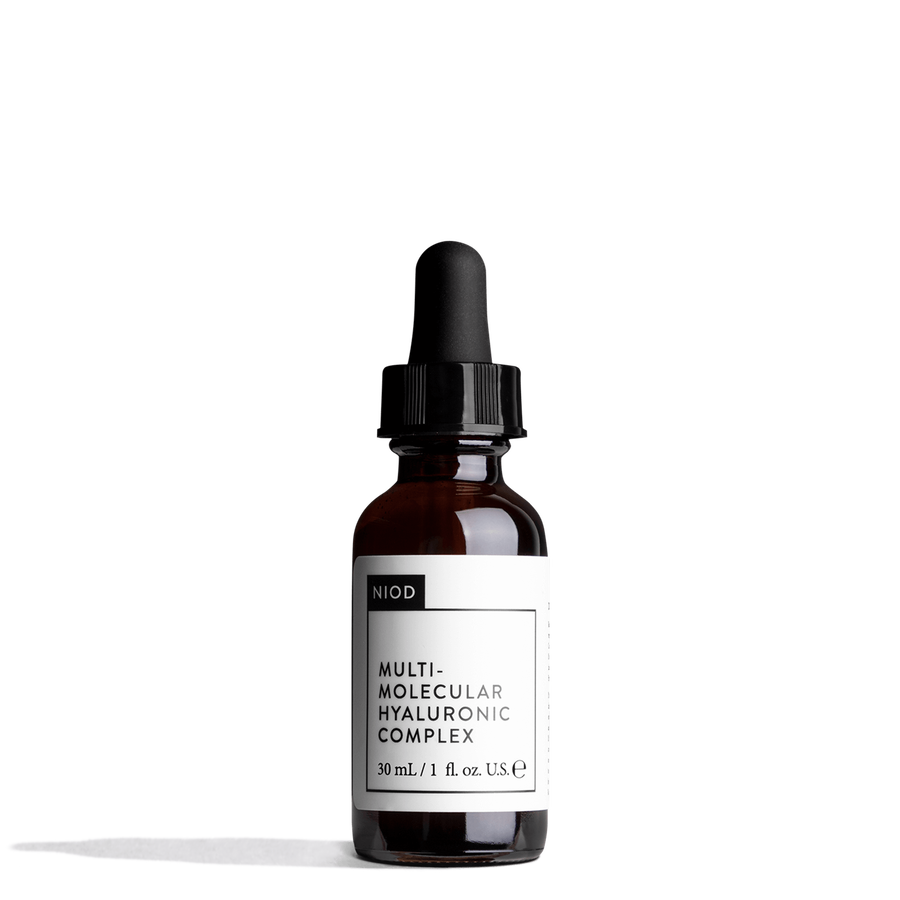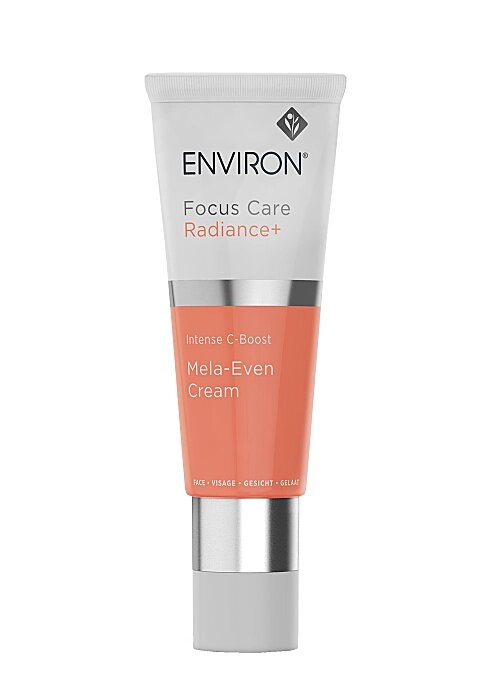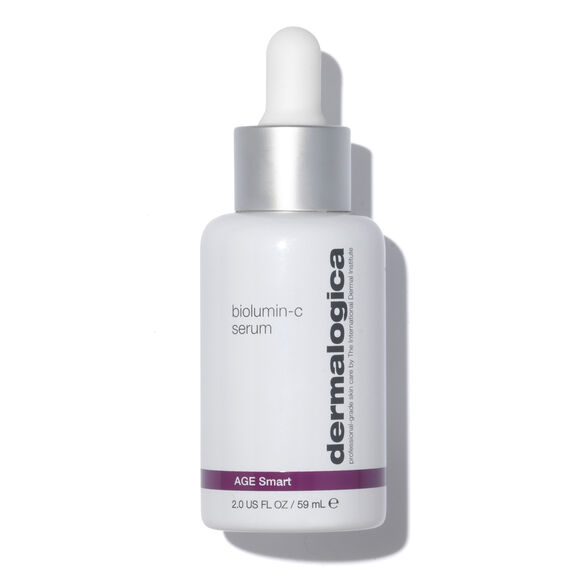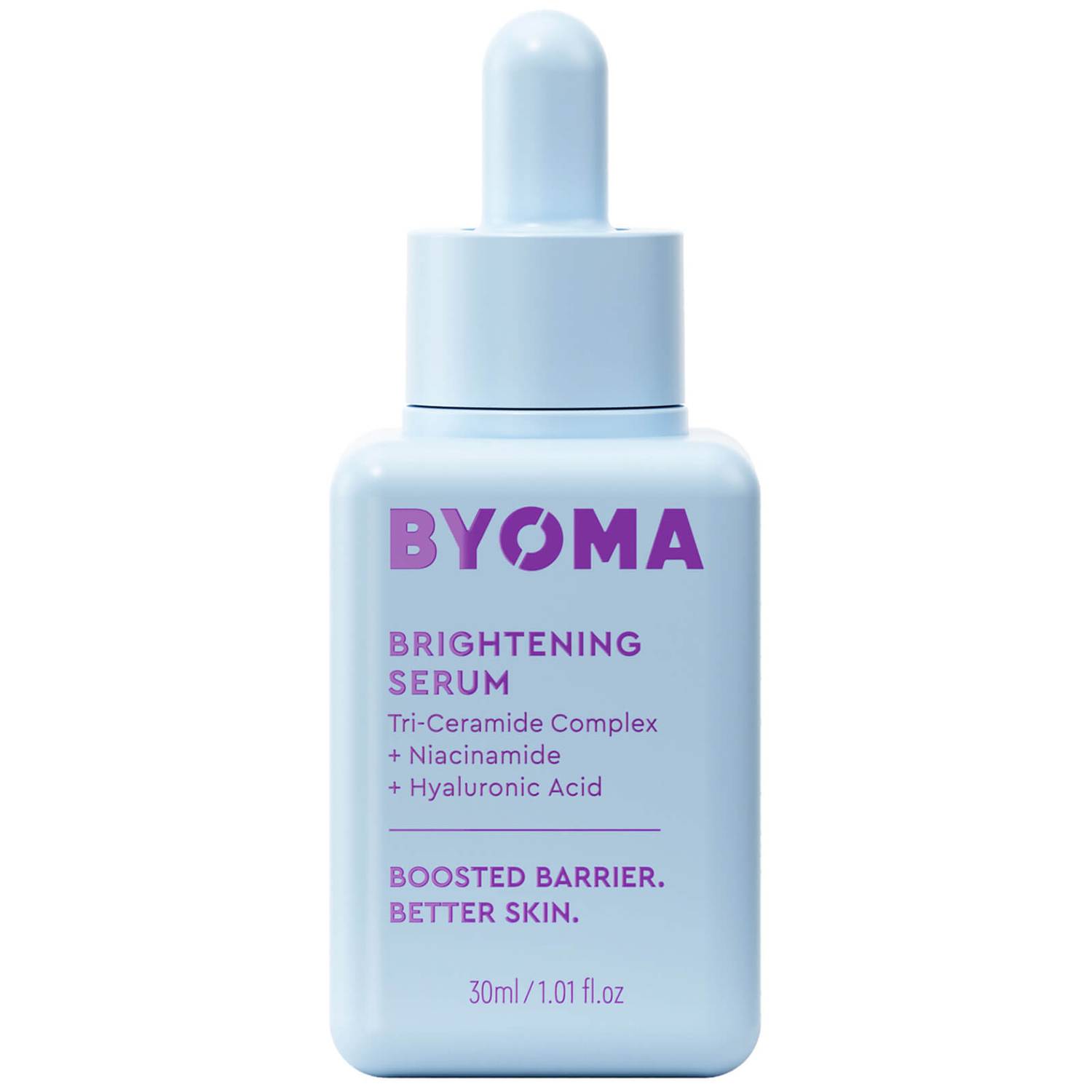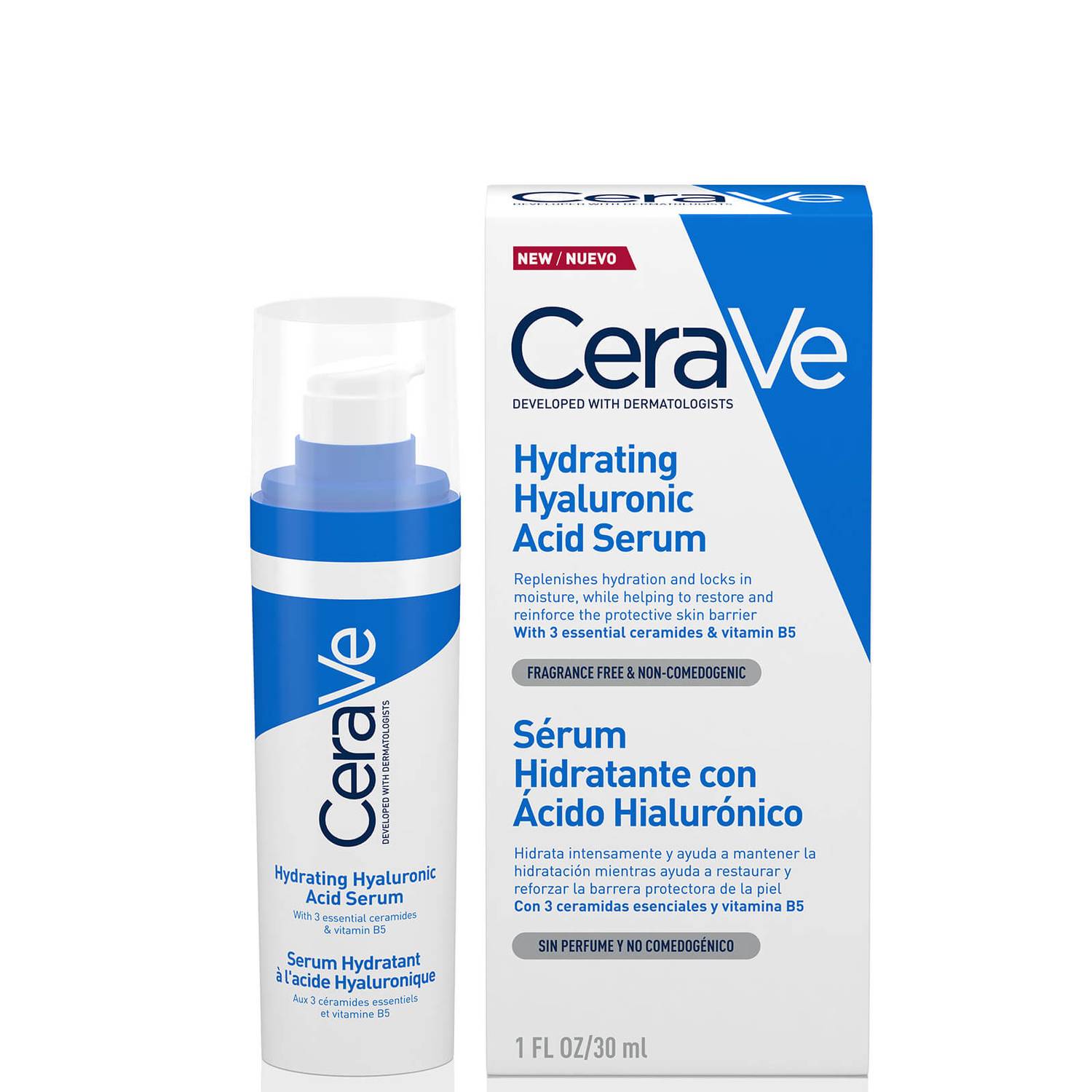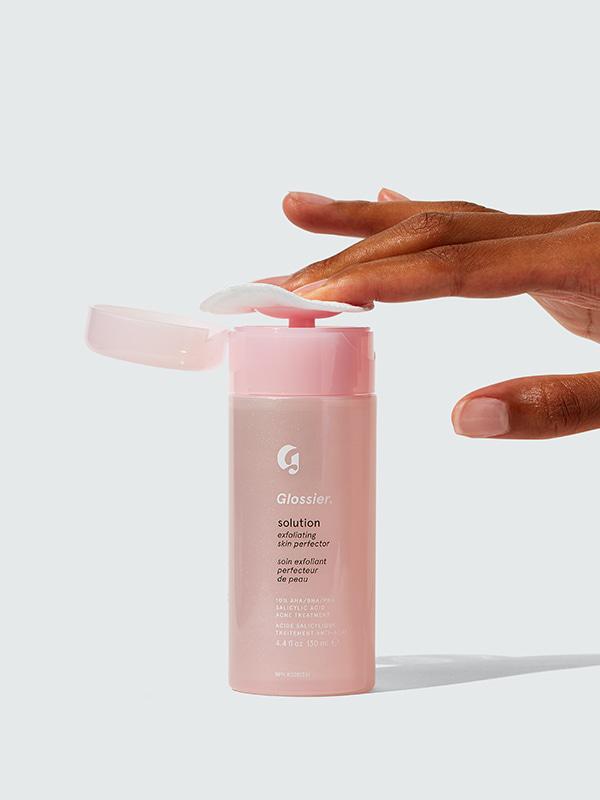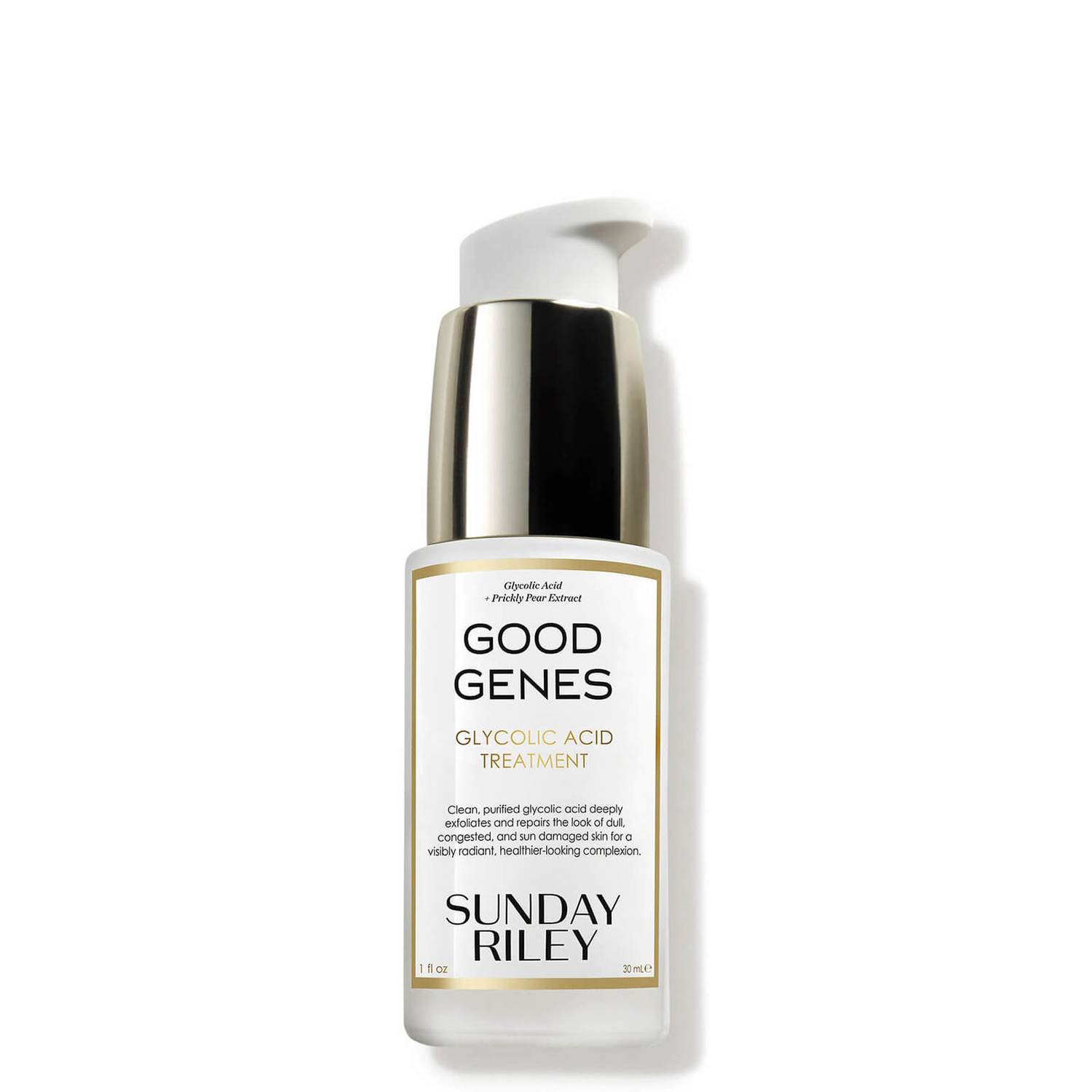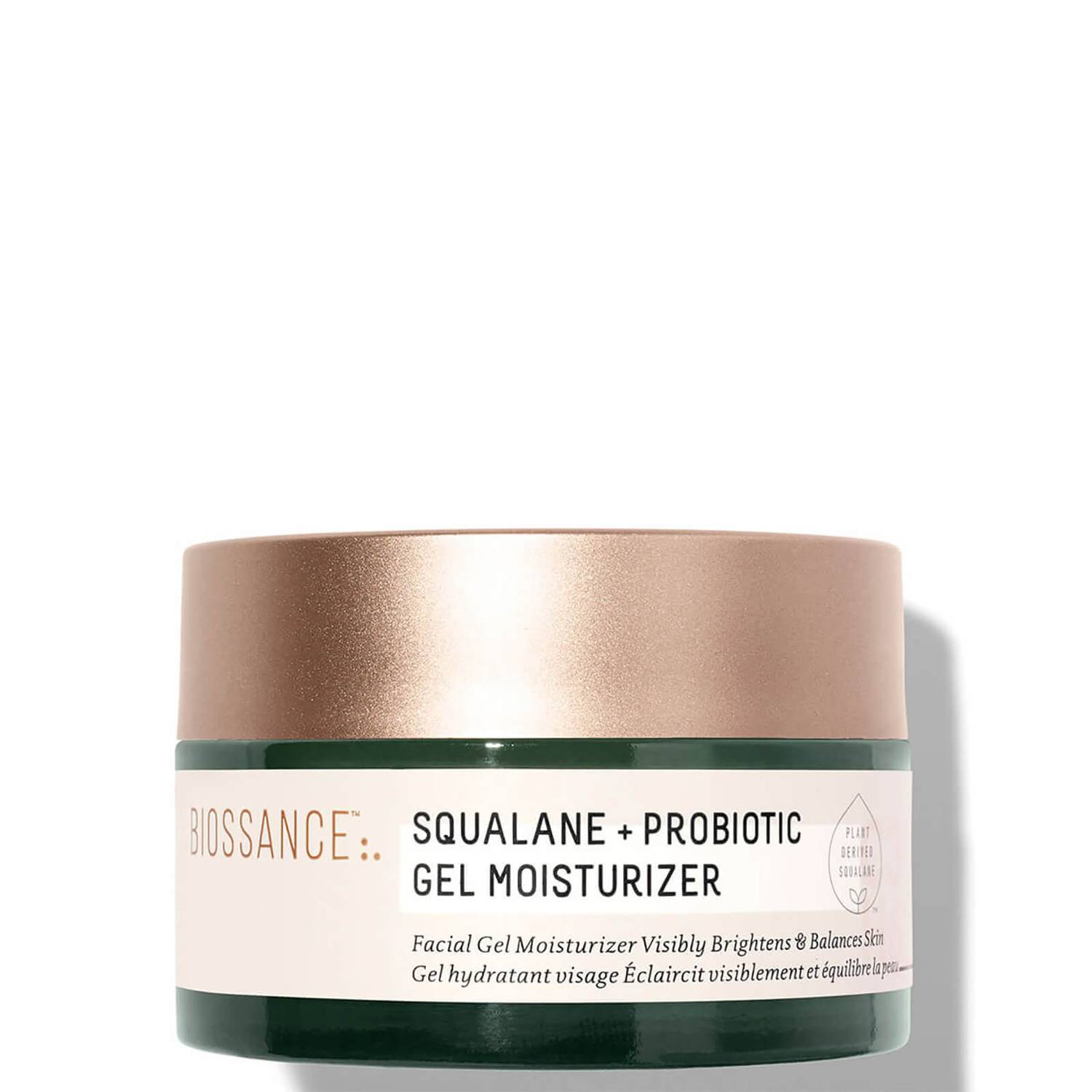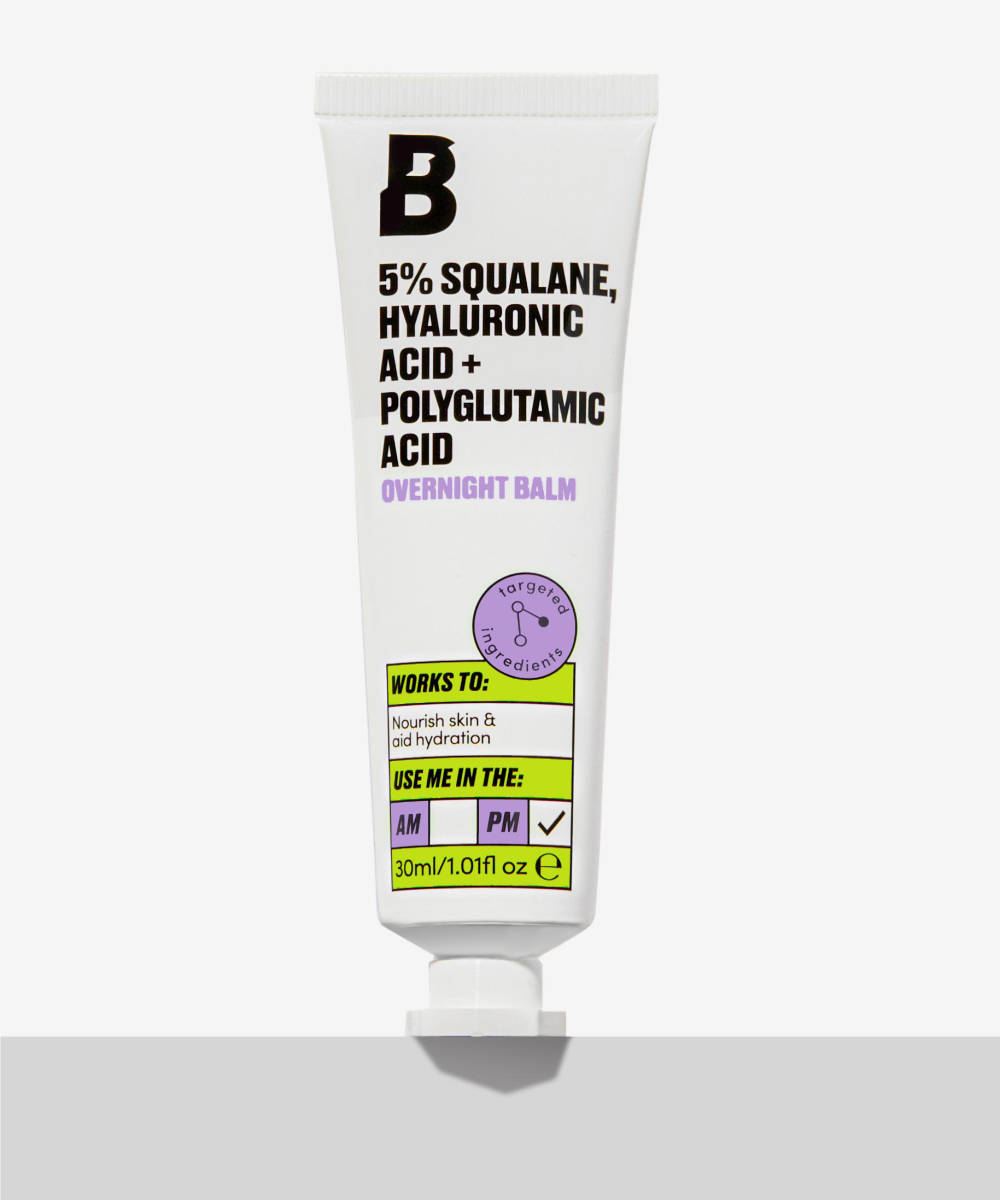I'm an Aesthetician—These Are the Best Skincare Ingredients of All Time
From cult favourites like vitamin C and retinol to trending ones like squalane and ceramides, these are the best skincare ingredients to look out for.

As an aesthetician, I’m faced with skincare-related questions from clients, friends, colleagues and even strangers on the internet on an almost daily basis. Whilst common questions include what the best skincare brands are, how to carry out the perfect skincare routine, how get rid of acne, the best way to treat dry skin and product recommendations for dark under-eye circles, in the past year I’ve noticed an increase in questions related specifically to skincare ingredients. "When should I start using retinol?" "Is niacinamide good for acne-prone skin?" and "What is hyaluronic acid?" are now some of the most-asked questions in my DMs and WhatsApp messages.
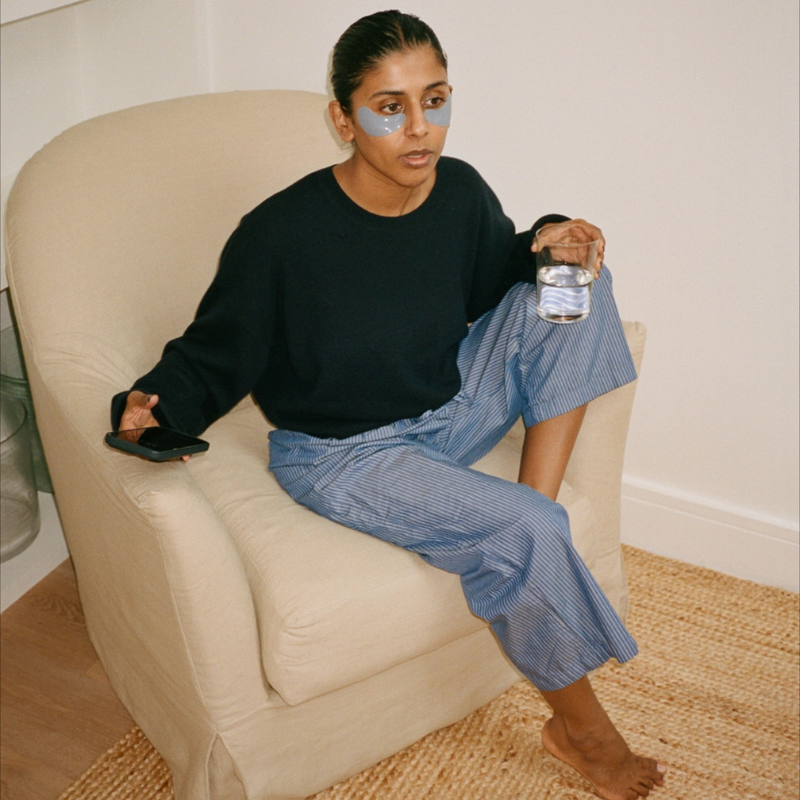
It’s all part of the growing interest in skincare we’ve seen post-pandemic—Google searches for ‘skincare ingredients’ have more than doubled in the past three years—and it makes total sense. As people are becoming more clued up about skincare, it’s understandable that they’re spending time investigating and analysing formulas to check out what ingredients are in their skincare before buying it. After all, knowing exactly what ingredients you’re using and how they work is the best way to ensure you’re directly targeting your individual skin goals.

The thing is, having a perfect skincare routine (if that even exists!) doesn’t necessarily mean you need a 10-step routine or a shelf of expensive products. As long as you have the best skincare ingredients for your specific skin concerns, then you’re on the right path to seeing really noticeable results. The best part is that if you take an ingredient-led approach, you don’t need to spend a ton of money. Thanks to ingredient-focused skincare brands like The Ordinary, The Inkey List and CeraVe, you can easily find affordable skincare products that feature the same effective ingredients as their more expensive counterparts.
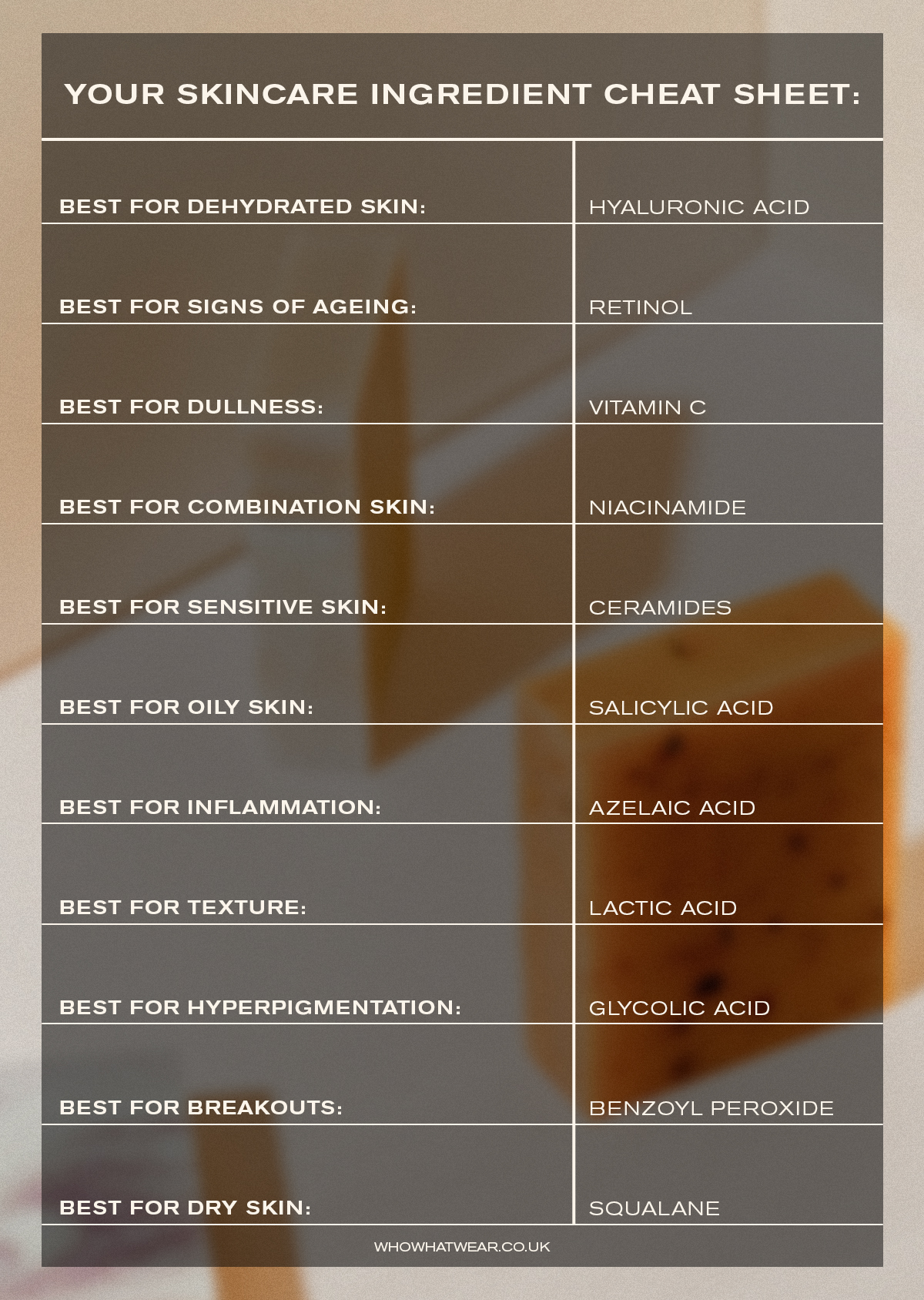
Download or screenshot our cheat sheet ready for your next skincare investment!
So, where to start? There’s a lot of noise out there about the latest trending ingredients, which can make it hard to separate the truth from the marketing, but the best skincare ingredients are the tried-and-tested heroes that brands have been formulating with for years. They’ve been through rounds of clinical testing, have benefitted from scientific innovation, and have real, proven results that stand as testament to their efficacy. I asked dermatologists Sonia Khorana and Zainab Laftah for their top ingredient recommendations, from niacinamide and retinol to vitamin C and ceramides.

If an ingredient has made it onto this list, you know that it’s one of the best…
The Best Skincare Ingredients to Look Out For
1. Hyaluronic Acid
Chances are, you’ve probably already heard of hyaluronic acid—it’s a commonly used ingredient, often found in products like moisturisers and serums, which has benefits for all skin types—but especially dehydrated skin. "Hyaluronic acid is a humectant, meaning it pulls moisture to itself," explains Khorana. "It hydrates without pore clogging, so it’s great for all skin types and pairs well with several ingredients, which make it work better." Applied topically, hyaluronic acid can hold over 1000 times its weight in water, which means it really boosts skin’s moisture levels.
Shop Hyaluronic Acid Skincare:
2. Retinoids
Retinoids are another hugely popular skincare ingredient, typically found in "anti-ageing" serums. Whilst they are most often touted as an anti-ageing ingredient, they have impressive benefits for those with concerns like congestion and dull skin. "Retinol encourages skin cell turnover, which helps deal with dullness most people experience in the winter months," says Khorana.
"It also boosts collagen and helps to even out discolouration and hyperpigmentation, encourages cellular turnover, stimulates collagen, softens fine lines and helps fade pigmentation." Basically, a real multitasker. However, if you have sensitive skin or you’ve never used a retinol before, it’s important that you choose a beginner-friendly formula, since retinol increases skin’s sensitivity and can lead to irritation and dryness if used incorrectly.
Khorana recommends looking for formulas that pair retinol with hydrating ingredients like glycerin and niacinamide. "This will help with tolerability, and these ingredients support the skin barrier so can fight off the negative side effects," she adds.
Shop Retinoids:
3. Vitamin C
Like retinol, vitamin C is particularly effective when it comes to addressing fine lines, loose skin and hyperpigmentation. "It’s a brilliant antioxidant, which fights free radical damage, brightens the skin, fades hyperpigmentation and stimulates collagen,” says Khorana. "It inhibits melanin production by inhibiting the enzyme tyrosinase – this interferes with abnormal pigmentation."
Vitamin C doesn’t always play well with other skincare ingredients, so you should avoid layering it with other actives like retinol or exfoliating acids. However, Khorana explains that it does work well with complementing antioxidants like vitamin E and ferulic acid. "They will boost the efficacy and stability of the molecule," she explains.
Shop Vitamin C Skincare:
4. Niacinamide
Niacinamide is one of the best multitasking skincare ingredients out there, with benefits for skin concerns ranging from oily and acne-prone through to dry and dehydrated. "It’s highly effective in restoring the lipid layer in the stratum corneum [the top layer of skin] to maintain and strengthen the skin’s natural moisture barrier," says Khorana.
"And it’s also shown to have antioxidant capabilities, so it helps address pigmentation concerns when paired with vitamin C." In addition, niacinamide can help to lower the skin’s sebum production, reducing the excess oil that can clog pores and lead to breakouts. It can be paired with several ingredients—commonly, you’ll find it in serums alongside hydrating ingredients or antioxidants like vitamin C.
Shop Niacinamide Skincare:
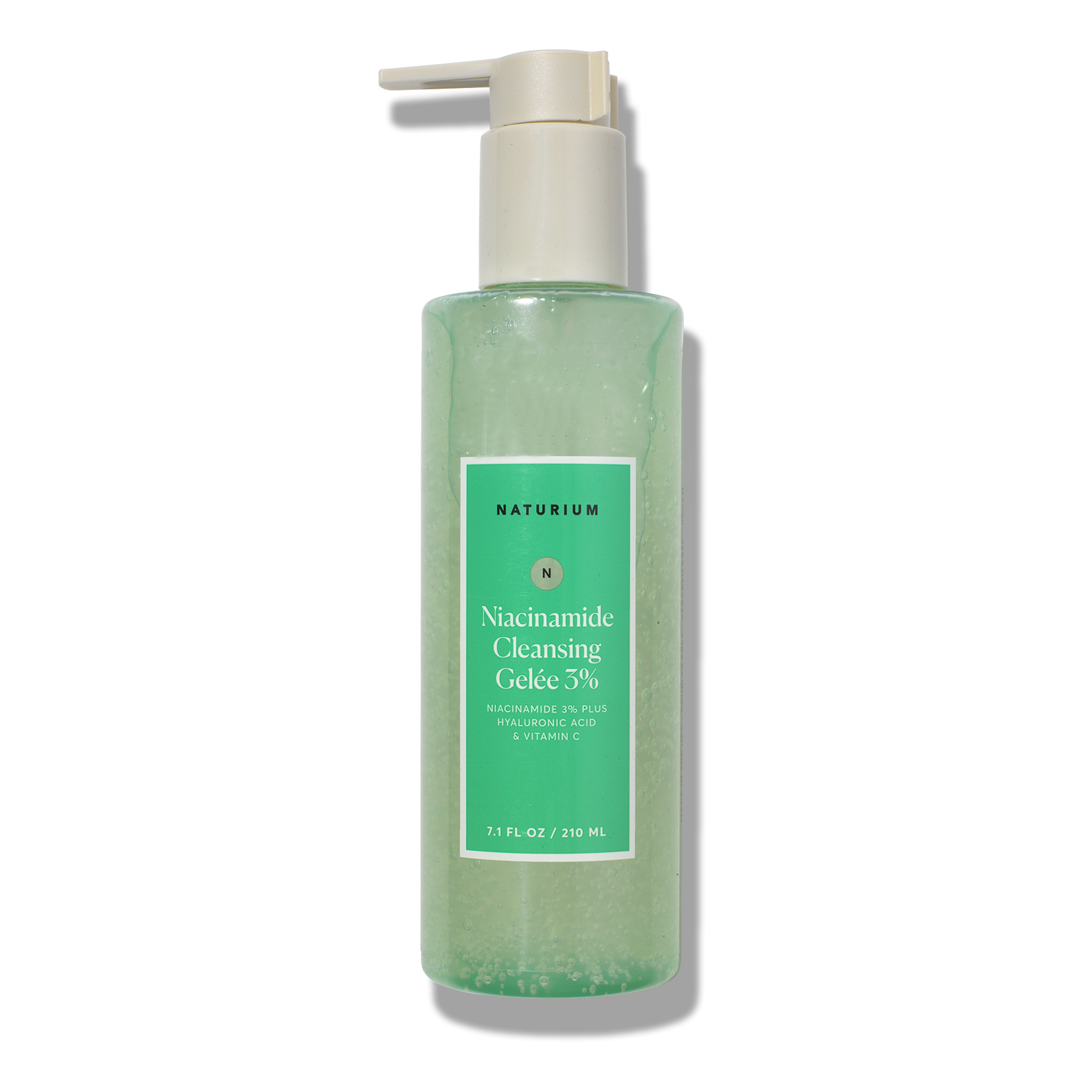
If you want every aspect of your skincare routine to focus on targeting pigmentation and texture, add in this refreshing gel cleanser from Naturium. It can also be used as a mask, so your skin can reap the benefits of 3% niacinamide for longer.
5. Ceramides
Whilst ceramides have featured in skincare formulations for years, they’ve become increasingly popular in the past year as focus has shifted to ingredients that support and strengthen the skin barrier. "Ceramides help rebuild and restore the skin barrier to retain moisture and block environmental damage," explains Khorana. "They are well tolerated by all skin types and perfect for those with dry or sensitive skin."
What’s more, she adds that ceramides are safe to use in conjunction with most, if not all, ingredients. This means that you don’t have to worry about any issues with layering ceramide-rich products (most often moisturisers) over active ingredients. In fact, ceramide-based products are a great addition to routines that feature ingredients like retinol and glycolic acid, as (by supporting the skin barrier) they will help to counteract the sensitivity that these ingredients can cause.
Shop Ceramide Skincare:

Dr. Jart+'s Ceramidin range comprises serums, essences, creams, masks and (my personal favourite) this ultra-hydrating cream mist. It's thicker in texture than most face sprays (more like a spray-on serum), so if you have dry or sensitive skin, you'll really feel the benefits.
6. Salicylic Acid
Oily and acne-prone skin types in particular will benefit from using products containing salicylic acid—an exfoliating acid often referred to as a BHA (beta hydroxy acid). "It works by softening and dissolving keratin, a protein naturally found in the skin that can block pores by causing skin cells to stick together," says Khorana.
"It helps loosen desmosomes, allowing the cell to let go of the excess sebum that oily skins like to hold onto." Because salicylic acid keeps pores unclogged, it helps to address concerns like enlarged pores, whiteheads and blackheads, too, and it also exfoliates dead skin cells to prevent future congestion.
Shop Salicylic Acid Skincare:

For those with oily or breakout-prone skin, clay and sulphur-based face masks are amazing for drawing out congestion. This fast and effective option from Topicals also adds salicylic acid into the mix, so your skin feels deeply cleansed and refreshed.
7. Azelaic Acid
Azelaic is one of the best skincare ingredients for inflammatory skin conditions that trigger redness in the skin, like acne and rosacea. "It’s a very versatile ingredient with anti-inflammatory and antioxidant properties," says Laftah.
"It is a free radical scavenger, so it reduces inflammation and is also a tyrosine inhibitor, which helps fade hyperpigmentation. Plus, because it’s antibacterial and has keratolytic properties [can break down excess skin], it helps treat acne." Despite having acid in the name, this ingredient is super gentle on the skin, so you don’t need to be concerned about using it if you have sensitivity.
Shop Azelaic Acid Skincare:
8. Lactic Acid
Lactic acid is a chemical exfoliant, categorised as an AHA (alpha hydroxy acid). If you have dry skin, rough skin texture or hyperpigmentation, then products containing lactic acid will be great ones to reach for. "It works by boosting skin cell turnover and reducing the buildup of dead skin cells," explains Laftah. "Which is how it helps even the skin tone and texture." Lactic acid is one of the more gentle chemical exfoliants and also helps to increase moisture levels, so it is one I often recommend to those with dry and sensitive skin.
Shop Lactic Acid Skincare:

Some exfoliating toners can be too harsh for dry and sensitive skin, but thanks to lactic acid and a formula focused on hydrating and soothing, these fast and effective exfoliating pads help to remove dead skin without irritation.
9. Glycolic Acid
Like lactic acid, glycolic acid is also an AHA but has a much smaller molecular size, which means it can penetrate deeper into the skin. It is less suitable for dry and sensitive skin types than the above, but it does have a stronger effect, so it will really help to speed up skin cell turnover, quickly leading to smoother, brighter skin. "It works by loosening the bonds that hold the dead skin cells together to aid skin’s natural exfoliation process," explains Laftah. "Over time, this helps to reduce pigmentation and brighten the skin’s appearance, so it’s great for those with blemish-prone skin, hyperpigmentation and dull skin."
Shop Glycolic Acid Skincare:
10. Benzoyl Peroxide
Benzoyl peroxide isn’t widely available in ‘on the shelf’ products in the UK since (at a certain strength) as it requires a prescription. However, it is considered a really effective ingredient for acne-prone skin and is typically found in targeted spot treatments, cleansers and masks aimed at those who experience breakouts, making it worthy of being on this list. According to Laftah, it’s particularly effective for mild acne and blemish-prone skin because it has anti-inflammatory and antibacterial properties. "It also reduces excess oil production and helps unclog pores," she adds. Consult your doctor if you are looking for more information on benzoyl peroxide.
Shop Benzoyl Peroxide Skincare:
11. Squalane
One of the best ingredients for dry skin, squalane is an oil-like substance that is suitable for all skin types, even oily and breakout-prone skin. "This is because it’s an organic compound with similar properties to the skin’s natural oil," explains Laftah. Basically, if you avoid using oils because you’re concerned about their pore-clogging properties, squalane is an ideal non-pore-clogging alternative. It’s still a powerful moisturiser, however, and acts as an occlusive, which means it seals moisture into the skin and prevents it from escaping. The result? Improved moisture levels and softer, more nourished skin.
Shop Squalane Skincare:
Why Trust Us
At Who What Wear UK, we know that beauty isn’t one-size-fits-all. Our editors have tested thousands of products, including skincare, makeup, hair and nails, over the years and work closely with trusted experts—dermatologists, make-up artists and leading industry insiders—to ensure every guide is well-researched, inclusive and relevant to you.
We focus on formulas that deliver, whether they’re affordable favourites or luxury investments. Our product selection is based on tangible results, ingredient know-how and what we’d truly recommend to a friend.
Grace Day is a beauty editor and content creator. She has over 10 years of beauty-industry experience, spanning editorial, retail, and e-commerce, which gives her a unique understanding into how people shop for their beauty routines.
While studying for a history degree (specialising in the history of beauty) and working as a beauty adviser in department stores, Grace started writing her own beauty blog in order to share the products she discovered while dealing with acne. After graduating, she moved to Beauty Bay as beauty editor and content manager. Grace is currently a beauty contributor to Who What Wear. She has also written for Hypebae and PopSugar and works as a brand consultant and copywriter.

